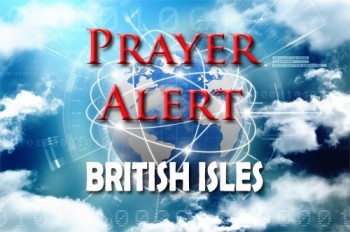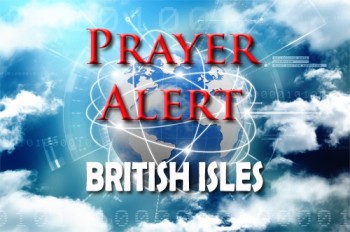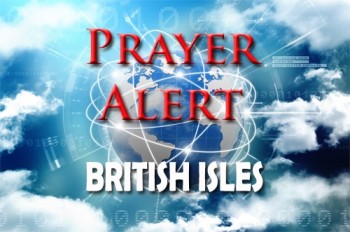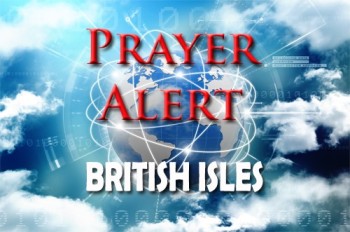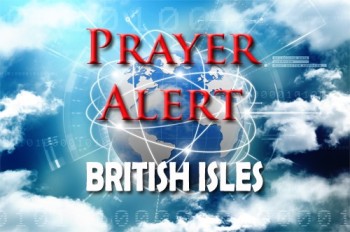
David Fletcher
David Fletcher is Prayer Alert’s Editor.
He is part of a voluntary team who research, proof-read and publish Prayer Alert each week.
If you would like to make a donation towards our running costs, please click here.
Mississippi quarterback Trinidad Chambliss has captured national attention not only for his remarkable rise in college football, but for his bold and consistent Christian witness. After leading Ole Miss to a dramatic comeback victory over Georgia in the Sugar Bowl quarterfinal, Chambliss immediately gave glory to Jesus during a live ESPN interview, declaring his gratitude to Christ for sustaining him through every high and low. The win followed a standout performance in which Chambliss threw passes for 362 yards and two touchdowns. His faith has remained central throughout the season, especially after stepping in as starting quarterback following injury to a teammate. He regularly credits Jesus for giving him peace amid pressure, openly sharing his testimony with media and fans alike. Raised in a faith-centred family, his name, meaning 'Trinity’, reflects his parents’ commitment to Christ. Chambliss continues to trust God fully, offering a powerful example of humility, courage, and public faith.
The UK armed forces have confirmed they supported a US-led operation to seize a Russian-flagged oil tanker in the North Atlantic, amid growing concerns over so-called 'shadow fleets' evading international sanctions. The tanker, Marinera, was intercepted while sailing between Iceland and Scotland after US authorities obtained a legal warrant to seize it. At Washington’s request, the UK provided surveillance support through RAF aircraft and a Royal Navy support vessel. Defence secretary John Healey said the action fully complied with international law and formed part of stepped-up efforts to counter malign activity at sea. The tanker is accused of transporting oil on behalf of Iran, Russia and Venezuela, with proceeds allegedly financing terrorism and contributing to Russia’s war in Ukraine. Moscow has condemned the seizure, while the US praised UK cooperation.
A former British soldier has been jailed for fourteen years after selling lethal chemicals online to assist suicides, resulting in the deaths of two people. Miles Cross, 33, from Wrexham, used an online discussion forum to advertise the substance for £100, sharing a QR code to enable discreet ordering. He supplied the chemical to four individuals during the summer of 2024, even continuing sales after learning that one recipient, had died by suicide using the substance he provided. Prosecutors said Cross deliberately set up new digital and financial accounts to facilitate the operation and acted for personal financial gain, targeting complete strangers at moments of extreme vulnerability. The court heard evidence of his deteriorating mental health, but the judge emphasised the gravity of exploiting distressed individuals and enabling loss of life. This was a disturbing example of online predation and a warning of the dangers faced by vulnerable people in unregulated digital spaces.
A damning review has revealed serious failures in the Metropolitan Police’s recruitment and vetting processes, with thousands of officers and staff inadequately checked during a major recruitment drive. The report found that as many as 22,000 recruits between 2019 and 2023 were subject to reduced or incomplete vetting, contributing to at least 131 cases of criminality or misconduct. Among those improperly vetted were two serial rapists, who committed grave crimes while serving as police officers. Investigators concluded that pressure to meet recruitment targets, including efforts to address workforce diversity, led senior leaders to bypass national vetting standards. Thousands of references went unchecked, security clearances were skipped, and some recruits began duties before approvals were complete. Home secretary Shabana Mahmood described the failures as a 'dereliction of duty' which damaged public trust and put citizens at risk.
Three high school pupils from Wigan were seriously injured after falling from the top window of a double-decker bus in Ashton-in-Makerfield. The incident prompted an emergency response that included police, paramedics, and an air ambulance. All three children were taken to hospital with serious injuries, though police later confirmed that none are believed to be life-threatening. Roads in the area were temporarily closed to allow emergency services to respond and conduct initial enquiries, but have since reopened. Greater Manchester Police described the incident as deeply concerning but said it appears to have been a tragic accident. The incident has understandably caused shock within the local community and raised questions around safety on public transport for young people.
Churches across the UK are being urged to support Dry January 2026, as an estimated 17.5 million adults commit to a month without alcohol. The initiative, led by Alcohol Change UK, invites people to pause drinking for 31 days to reflect on habits and wellbeing. Research linked to the campaign notes benefits including improved sleep, better concentration, increased energy, and financial savings. Christian anti-addiction charity Hope UK wants churches to recognise Dry January as a pastoral opportunity, particularly for those quietly struggling with alcohol. One trustee has warned that alcohol-centred socialising remains common in church life, potentially excluding or harming vulnerable individuals, and says that alcohol-related struggles often remain hidden due to shame or fear of judgement. Hope UK encourages practical steps such as offering alcohol-free communion options, choosing non-drinking venues for gatherings, and speaking openly about alcohol with compassion. The charity believes Dry January aligns closely with the Church’s calling to provide safe, supportive spaces where people can pursue healthier choices and honest conversations about addiction and wellbeing.
The United Kingdom and France have agreed in principle to deploy troops in Ukraine if a peace deal with Russia is reached, marking a significant step in European security planning. Keir Starmer said the declaration of intent would allow British, French and partner forces to operate across Ukraine to deter future aggression, while Emmanuel Macron suggested thousands of troops could be involved. Allies meeting in Paris broadly agreed on the need for robust security guarantees, with the USA expected to lead monitoring of any ceasefire. However, major questions remain unresolved, particularly over territory occupied by Russia and the precise terms of enforcement. Moscow has warned foreign troops would be legitimate targets and has so far remained silent on the proposals. Volodymyr Zelensky, who said on 1 January that a peace deal was ‘90% ready’, welcomed the talks as progress but stressed that guarantees would only matter if they truly ended the war, as pressure grows on all sides to compromise.
Debate over Donald Trump’s apparent interest in taking over Greenland from Denmark has exposed a serious weakness within NATO. While diplomacy may yet prevail, the situation highlights how dependent European allies have become on American military power. Decades of reliance on the USA have left the alliance vulnerable if Washington ever withdraws support or acts independently. The UK illustrates this clearly. Despite presenting itself as Europe’s strongest military force, Britain relies heavily on the United States, particularly through its nuclear partnership and key battlefield 'enablers' such as satellite intelligence, electronic warfare protection and logistics. Successive governments have underinvested in these costly capabilities, assuming American backing would always be guaranteed. This dependence extends across NATO. Many members operate US-built equipment and plan defence around American leadership. Even as allies try to do more, the alliance still assumes a dominant US role. The Greenland debate sharpens a question NATO already faces: what if America is no longer fully on board?
Four days after the New Year’s Day bar fire that killed at least forty people, the Swiss resort of Crans-Montana remained in shock. In silence, thousands braved the cold to march through the town, stopping near the venue where the tragedy occurred, now hidden behind a white tarp. An improvised memorial of candles and flowers reflected the shared grief of residents and visitors alike. Among those gathered was a mother who had waited nearly three days for confirmation of her son’s fate. She described the anguish of uncertainty before finally learning of his death, and the painful relief of being able to begin mourning. While grateful for a final moment to say goodbye, she expressed anger at the prolonged silence from authorities during those critical days. It has now come out that the bar had not been inspected for at least five years: see
Donald Trump has said he will meet Colombian president Gustavo Petro at the White House in the near future, amid days of rising regional tensions. The announcement followed the US operation in Venezuela on 4 January which seized president Nicolás Maduro, with Venezuelan officials claiming a far higher death toll (over a hundred killed) than initially reported. Trump said he had discussed drugs and other disputes with Petro and welcomed a calmer tone, after previously issuing public threats. Petro warned Colombia would resist any US military action, even as Washington tightened control over Venezuelan oil sales and maintained sanctions on Bogotá, claiming that cocaine trafficking in Colombia had ‘exploded to the highest rate in decades’. Secretary of state Marco Rubio will help to arrange the talks. Meanwhile, Venezuela’s interim leader Delcy Rodríguez said that Maduro’s kidnapping was an unprecedented ‘stain on our relations’, but added: ‘Venezuela is open to energy relations where all parties benefit’. Meanwhile, the USA has seized two sanctioned oil tankers, one of them flying a Russian flag: see


